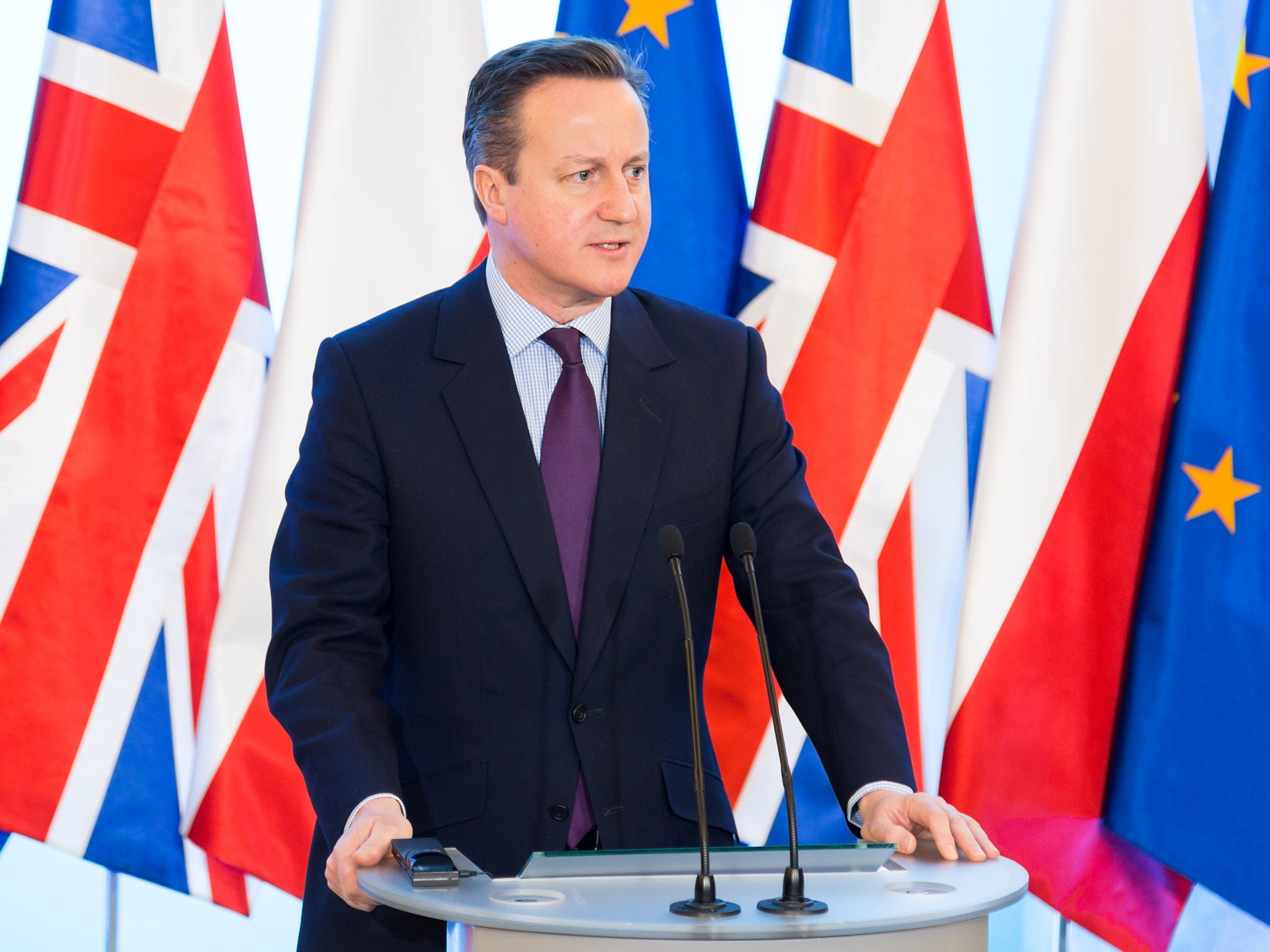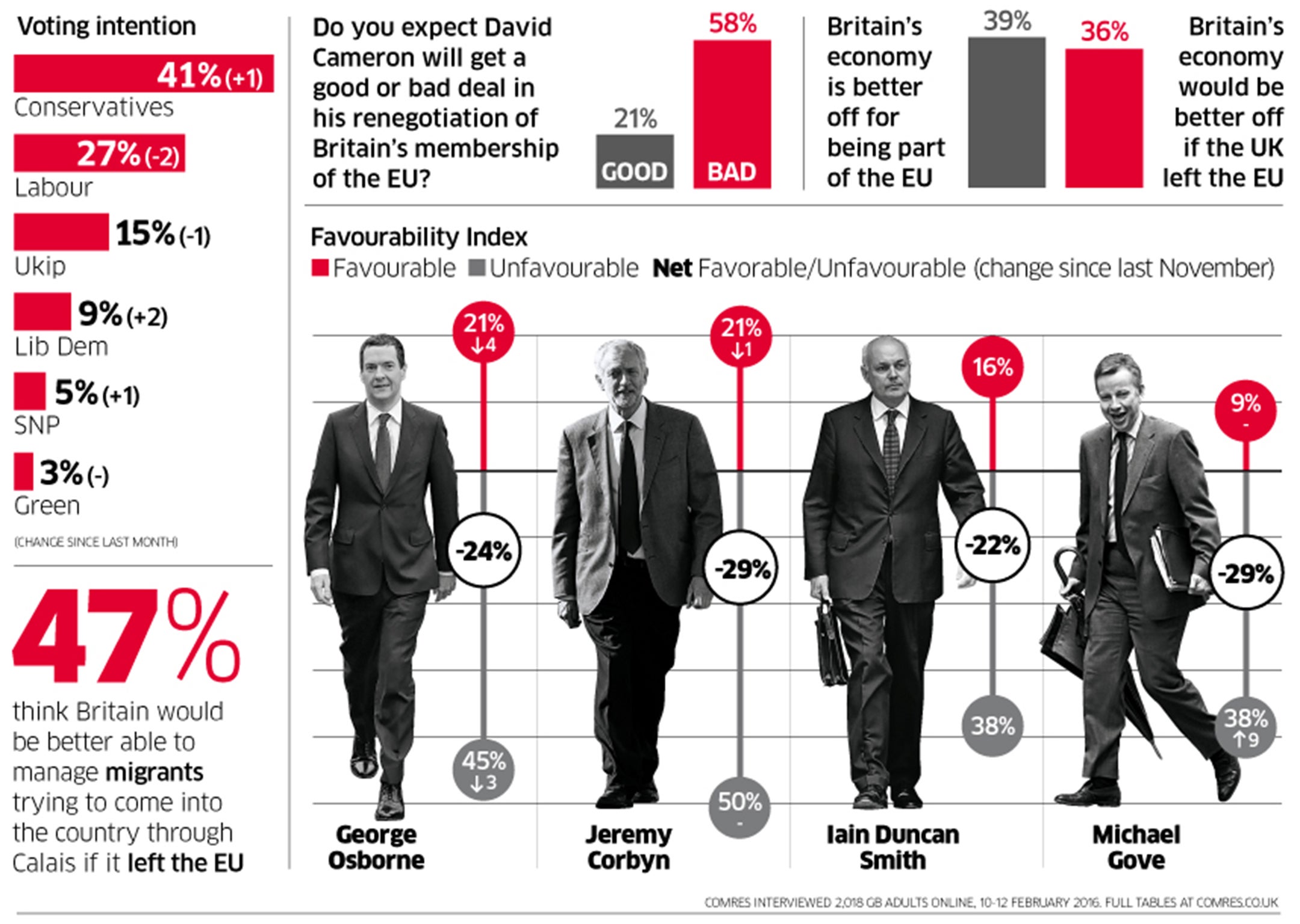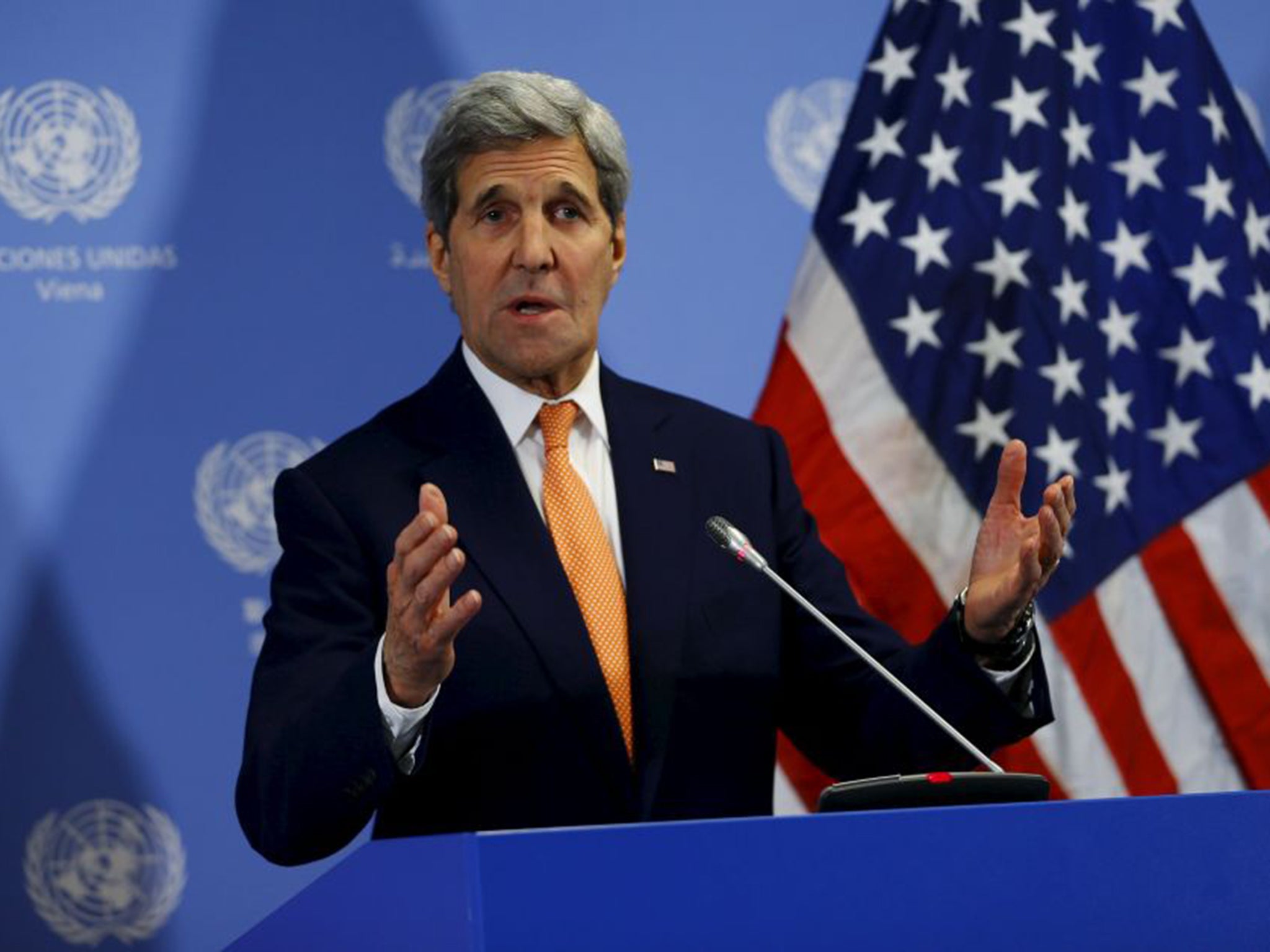EU referendum: David Cameron's approval ratings slump amid public anger over Europe negotiations
Exclusive: Mr Cameron is now seen unfavourably by half the country

Your support helps us to tell the story
From reproductive rights to climate change to Big Tech, The Independent is on the ground when the story is developing. Whether it's investigating the financials of Elon Musk's pro-Trump PAC or producing our latest documentary, 'The A Word', which shines a light on the American women fighting for reproductive rights, we know how important it is to parse out the facts from the messaging.
At such a critical moment in US history, we need reporters on the ground. Your donation allows us to keep sending journalists to speak to both sides of the story.
The Independent is trusted by Americans across the entire political spectrum. And unlike many other quality news outlets, we choose not to lock Americans out of our reporting and analysis with paywalls. We believe quality journalism should be available to everyone, paid for by those who can afford it.
Your support makes all the difference.David Cameron’s personal ratings have slumped amid widespread public dissatisfaction with his renegotiation of Britain’s place in the EU.
The Prime Minister, who will travel to Brussels on 18 February for a crunch EU summit to thrash out the last remaining details of his deal, is now seen unfavourably by half the country - almost identical to Jeremy Corbyn’s ratings.
The share of the country who look on Mr Cameron favourably has dropped seven points in the last three months to just 31 per cent, a ComRes poll for the Independent on Sunday found.
The drop in support for the Prime Minister coincides with growing scepticism at his ability to secure a good deal in talks this week.
Following the publication of the draft agreement earlier this month, six out of 10 voters now expect him not to get a good deal. Just 21 per cent, in contrast, believe he will secure a good settlement.
In a further blow to Mr Cameron the public also overwhelmingly rejects his claim that leaving the EU would jeopardise the ability to manage migrants trying to enter the UK from Calais.
Overall, 47 per cent of voters say Britain would be better able to control the Calais border outside the EU - compared to just 29 per cent who disagree.
The poll comes as Mr Cameron faces the biggest week of his premiership since the election. On 16 February he is expected to travel to Brussels for talks with the leaders of the European Parliament - including Nigel Farage.

Click HERE for larger annotated version of the graphic
He will then return to London before returning to the Belgian capital on 18 February to begin marathon talks aimed at reaching a final agreement.
Mr Cameron is understood to have told allies that he will pack three shirts in preparation for the summit dragging on until early on 20 February.
A final draft deal - including an “emergency brake” on benefits to EU migrants and a UK opt-out from “ever closer union” - is expected to be tabled by officials on 17 February. The final details will then be thrashed out by EU leaders over two days of talks.
A Number 10 source said Mr Cameron would demand a “legally binding, irreversible decision that would deliver fundamental changes” in Britain’s relationship with Brussels.
The source said nothing would be agreed “until everything is agreed” and said there were still four outstanding areas which had yet to be agreed.
The French are understood to be resistant to Mr Cameron’s demand for new protections for the UK economy against the Eurozone.
There is also expected to be opposition to Britain’s demand to be excluded from “ever closer union” and plans to limit child benefit for migrants.
However the biggest battle is still expected to be over the length of time the proposed emergency brake limiting EU migrants’ access to benefits is allowed to be in place.
Under the draft deal any migrant who enters the UK over a yet-to-be-agreed period of time will see their access to benefits restricted for four years.
Mr Cameron is under pressure to call an emergency cabinet meeting on 20 February amid growing anger among Conservative MPs that he could use the four-day window between the EU summit and the scheduled Downing Street meeting to get a “head start” against the eurosceptic campaign to leave.

Commons leader Chris Grayling and the Work and Pensions Secretary Iain Duncan Smith are understood to be pushing for the Prime Minister to have an early Cabinet meeting, or to delay any scheduled appearance on the BBC’s flagship Andrew Marr show on early on 21 February to sell his renegotiation.
Mr Cameron is expected to return back from Brussels on 20 February before briefing the Commons on 22 February before holding a meeting of the Cabinet on 23 February. Boris Johnson has been told to be available for a meeting of the political cabinet - which is made up of the Cabinet plus the London mayor - that day.
A source close to the London mayor said he would “take his time” to weigh up the deal before the Cabinet. “He will abide by the deal they’ve got as long as he’s seen the detail beforehand.”
It comes amid growing international pressure for the UK to to stay in the European Union.
On 13 February, the US Secretary of State John Kerry said Washington had a “profound interest in a strong UK staying in a very strong EU”.
The former head of Nato, the Labour peer George Robertson, told the IoS that Britain’s allies were growing concerned about the referendum.
He said: “I said in the EU referendum this country’s adversaries would have cheered if the UK had broken up and I have no doubts in my mind, if Britain pulled out of the EU that would be cheered on by the enemies and potential enemies of this country and of the West in general.”
Join our commenting forum
Join thought-provoking conversations, follow other Independent readers and see their replies
Comments